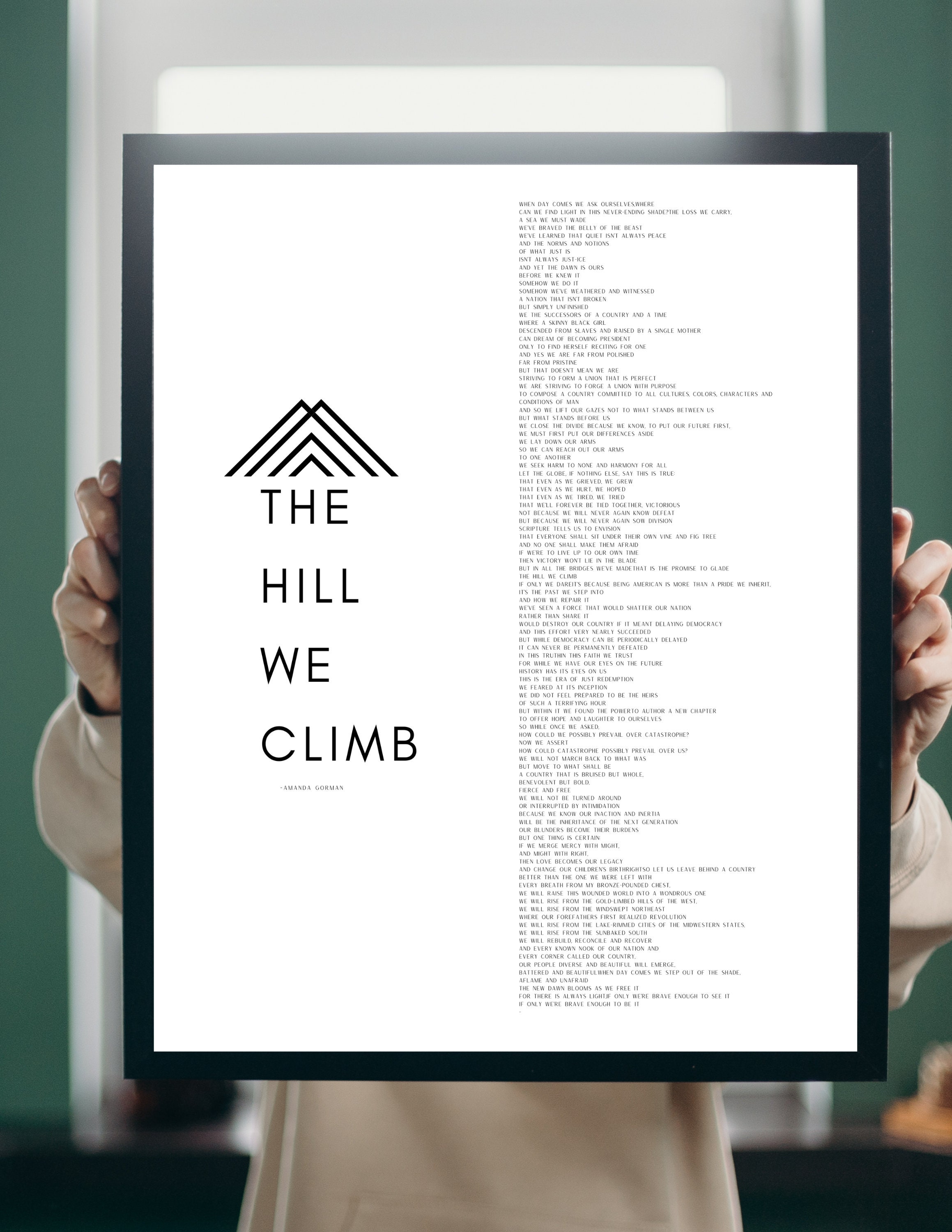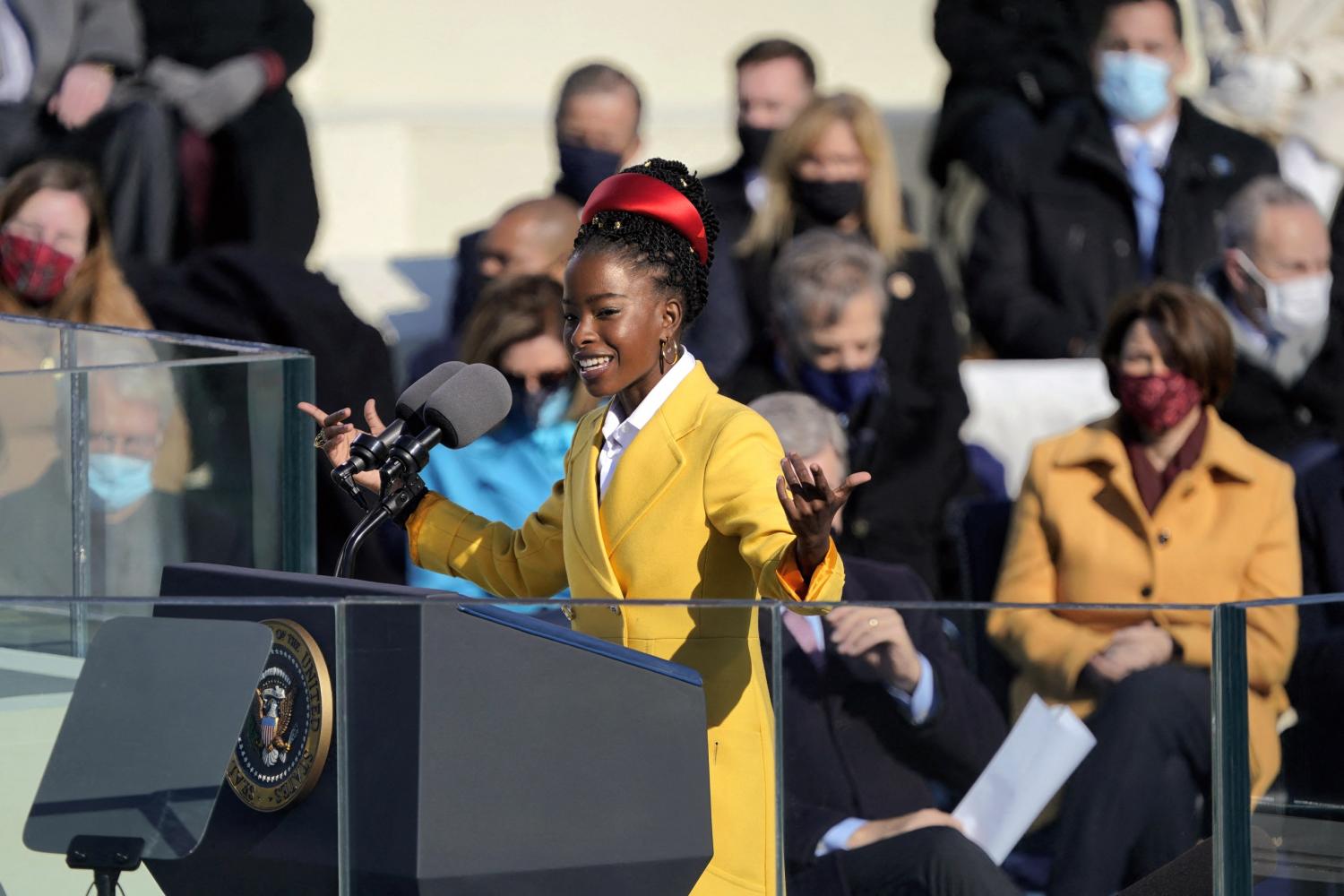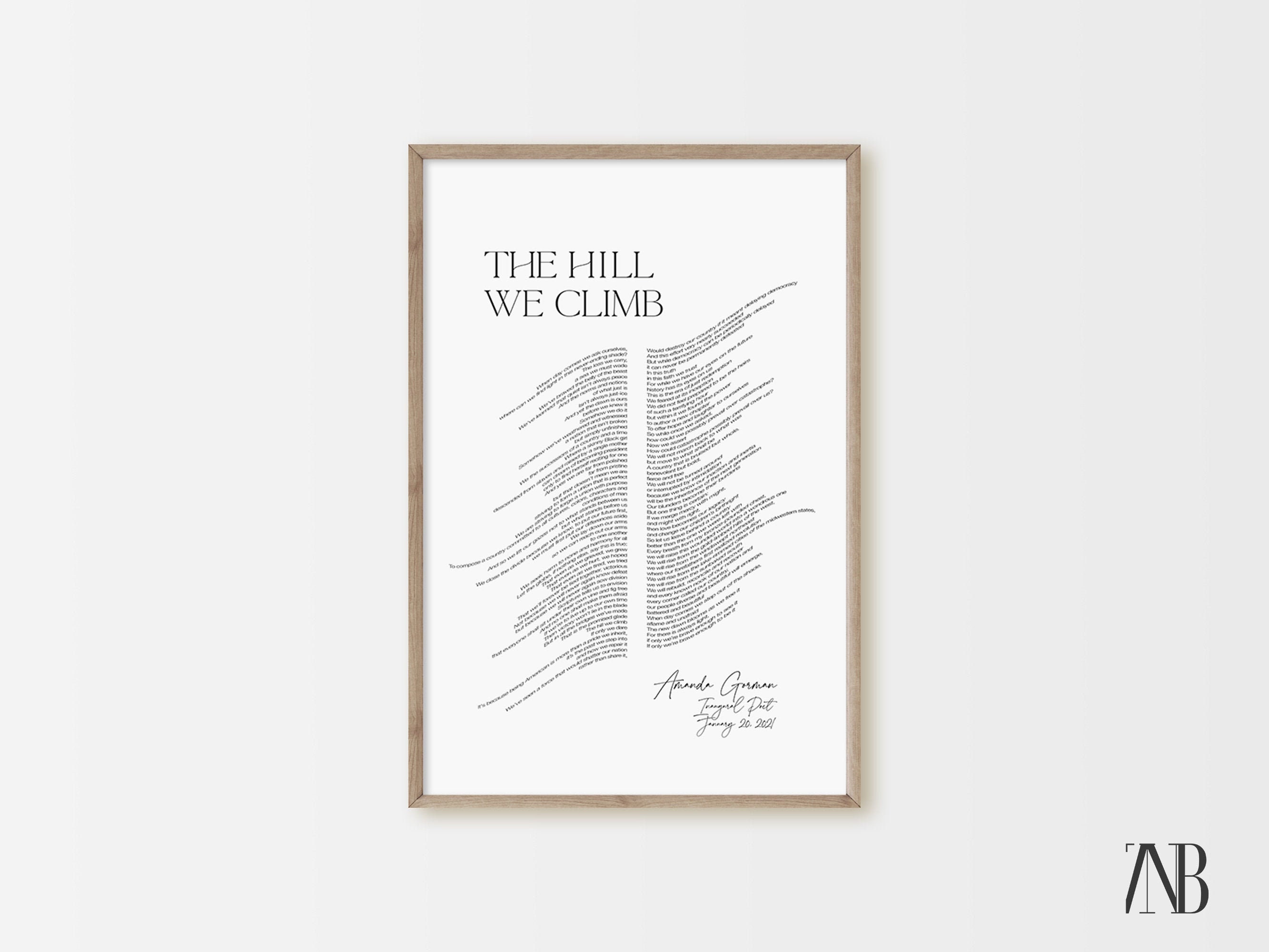

To mark Juneteenth, Gorman read on NPR "Fury and Faith," a poem from her poetry collection Call Us What We Carry. "It's to equalize, it's to connect, to engage, never to oppress." "The work of the poet is often the same work of democracy building," Gorman said. " are using their creativity not just for opulence or aesthetics or something that looks or sounds good, but something that speaks to real movement and momentum and social change," Gorman saidĪs a poet, she sees her role in that effort as speaking "the language of the people." Gorman drew parallels between this generation of artists and the Harlem Renaissance, which turned the New York neighborhood into a cultural destination in the 1920s and 1930s, as well as the Black Arts Movement of the 1960s and 1970s. "Despite all that blood and red and anger, there have been audacious dreamers in the African American community whose imaginations and hopes made our country arrive at something that is both larger and better than what we started as," she said.īlack artists, writers and fashion designers have been among the leaders in responding to the latest racial reckoning - an unfinished one - triggered by police killings in America. Gorman says her writing is meant to highlight both the injustices and the hope and solutions along that path. She hopes making Juneteenth a federal holiday provides it "a larger claim on the American consciousness" - and an opportunity to reflect on "the complicated and treacherous path that we often have to walk to guarantee liberty for ourselves and others."

"It's a symptom of violence, of intolerance, of hatred, of terrorism that we've seen inflicted against African Americans for centuries." "If you're paying attention to the African-American condition, it's not surprising," Gorman said of the attacks. This year's Juneteenth takes place in the shadow of televised hearings by the House committee investigating that insurrection, as well as a mass shooting that targeted a Black community in Buffalo, N.Y., last month. Capitol in a day of deadly white supremacist violence. It was an inauguration held under tight security just two weeks after a mob of supporters of the previous president, Donald Trump, stormed the U.S. Those struggles against injustice are at the heart of much of the poetry penned by Gorman, who at 22 was the youngest inaugural poet when she read "The Hill We Climb" at President Biden's inauguration last year. "We are celebrating African American liberty, but a liberty that has typically come delayed, a liberty that was not promised but something that we continuously have to fight for. it wasn't something that we need permission to look at," the first national youth poet laureate said in an interview on NPR's Morning Edition ahead of Sunday's holiday.

"African Americans and also communities beyond that have been celebrating Juneteenth for generations without it being federalized.


 0 kommentar(er)
0 kommentar(er)
